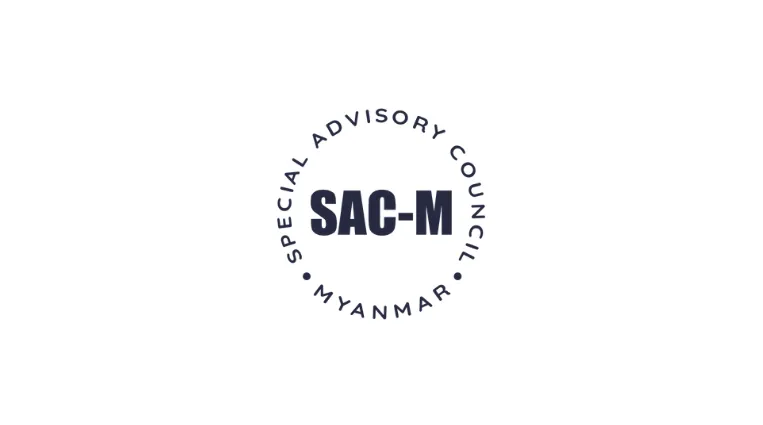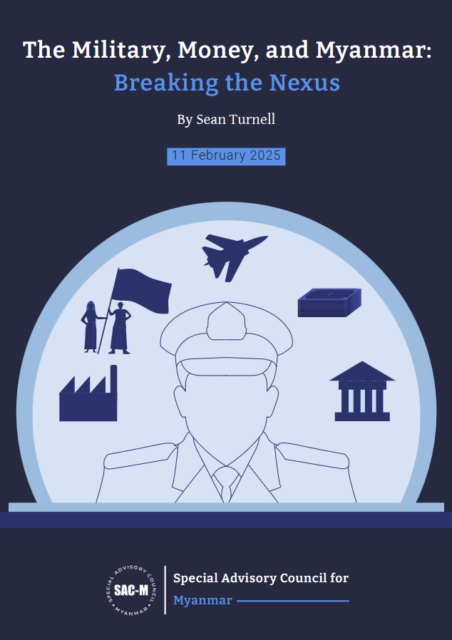The Military, Money, and Myanmar: Breaking the Nexus
11 February 2025


By Sean Turnell
Key Messages:
- The command that Myanmar’s military has over the country’s finances is at the heart of its ability to wage war on the people they are meant to protect.
- This nexus between money and oppression comes via the military’s control of Myanmar’s central bank, its tax system, the earnings of state-owned enterprises, and is extended via the military’s dominance over banks and other financial institutions.
- Since the military coup of February 2021, and the mismanagement and brutality of the State Administration Council (SAC) junta that has ruled much of Myanmar since, this chronic scenario has become dramatically worse. In an economy bent to the needs of war, money and munitions, these terms are near synonyms in Myanmar today.
- Myanmar’s people have not been passive to these depredations, and in the monetary and financial sphere, as well as on the battlefield, the forces of resistance to the SAC have been innovative and committed. Ancient and trusted monetary instruments that protect anonymity and freedom have returned; new institutions have been fashioned to fund the struggle against the junta’s tyranny.
- The atrocities committed by the SAC junta have also prompted a response from other countries. This includes the imposition of sanctions on the junta’s enabling financial institutions, as well as individuals who facilitate the flow of money to them. These sanctions are effective, especially in denying the junta the foreign exchange it needs to purchase advanced weaponry from abroad.
- Such international sanctions should be expanded in terms of the countries levying them, and to the institutions and individuals they target. Sanctions must extend to the central bank, as well as to the ability of Myanmar’s financial institutions more broadly to make and receive international payments.
- Debt issued by the SAC junta should be regarded as odious, and its repayment not to be binding on future governments in Myanmar. There should be no incentives for other countries to financially support the SAC junta, nor profit from its misrule.
- Longer term, Myanmar’s military must be financially subservient to the institutions of a democratic civilian government and parliament, subject to their oversight, and excluded from engaging in profit-making enterprise. Military owned and affiliated corporations should be detached from the military, privatised and their proceeds used as part of a sovereign fund to finance pension and other liabilities to Myanmar citizens broadly. Military-owned land and other assets should be transferred out of military ownership into a state property trust under the control of the democratic civilian government and parliament.
- Myanmar’s banks must be restructured, recapitalised, and reimagined as vehicles for peace and prosperity instead of as the sinews of war. Foreign investment in the sector should be encouraged as one way to avoid cronyism, while a new state-owned development bank created out of the ashes of existing government banks should assist in stability.
- Myanmar’s public finances must be placed on a sustainable stable basis, with a reformed and equitable taxation system complemented by a functioning market for government debt.
- A just and democratic fiscal framework between all levels of government in Myanmar, but especially between the centre and the states and regions, must be established. In the sphere of economic policy this must entail a greater decentralisation of decision making, which itself will resist the concentration of power in the ways long exploited by Myanmar’s military.
Announcements
21 May 2025
Open letter: Malaysia must lead ASEAN with principle, not hypocrisy, to address the Myanmar crisis

Progressive Voice is a participatory rights-based policy research and advocacy organization rooted in civil society, that maintains strong networks and relationships with grassroots organizations and community-based organizations throughout Myanmar. It acts as a bridge to the international community and international policymakers by amplifying voices from the ground, and advocating for a rights-based policy narrative.
Copyright © 2017 - 2025 All Rights Reserved - Progressive Voice (PV)
Website by Bordermedia